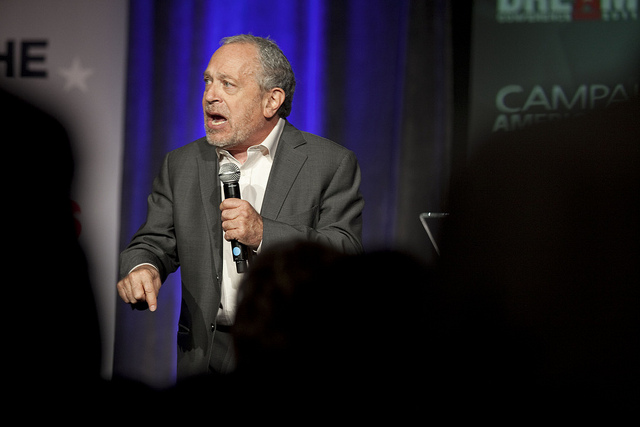
As the Take Back the American Dream conference began in Washington this morning, there was a major announcement: the launch of the largest effort to date to recruit progressive candidates for office.
Progressive Majority, MoveOn.org, Democracy for America, USAction, People for the American Way and other groups will partner to identify the best progressive leaders to run for office, and then support the campaigns with strategic and messaging help. The project is called “Run for America.”
Local office recruitment is a crucial component of progressive electoral strategy. In the 2010 midterms, Republicans took 675 state legislative seats, which was the biggest gain any party made at the state level since 1938. The damage was seen almost immediately in places like Wisconsin, Ohio, Florida, Pennsylvania and elsewhere.
The effort dovetails nicely with the theme of this morning’s speeches. Former Labor Secretary Robert Reich, who as many people forget very nearly faced off against Mitt Romney in the 2002 Massachusetts gubernatorial race, urged attendees to “run, run, and run again.” (On his lost opportunity to run against Romney, Reich says: “I would have whipped his ass.”)
Reich said political involvement is the only antidote to far-right political domination. “The weapon they are using is demoralization and cynicism,” Reich said. “Their number one weapon is to discredit government, discredit the capacity of us working together through the institutions of government given to us by the Constitution and the Founding Fathers….because if people really believe nothing can change, and they can have no part in changing it, then that is a self-fulfilling prophecy.”
Van Jones used his keynote to outline the American Dream movement, which emphasizes grassroots involvement. Jones wasn’t afraid to say the Tea Party was an inspiration for the American Dream movement—Jones, too, envisions a decentralized, grassroots movement that will push politicians with their activism.
“We sat back and let the Washington DC crowd do the best they could without us,” Jones said. “Help is on the way.” The general planks of the movement are labor rights, racial justice, environmental protections, women’s rights, LGBT rights and immigrant rights.
“We have been on a one-sided offensive in this country where the worst people in America with the worst ideas have dominated the discussion,” said Jones. “And I’m not mad at them. I’m not mad at the Tea Party. I’m not mad at them for being so loud. I’m mad at us for being so quiet.”
Jones says the nascent movement is already pushing an administration worried about re-election. “Why is the White House talking different? The White House is talking different because we are walking different,” he said.


